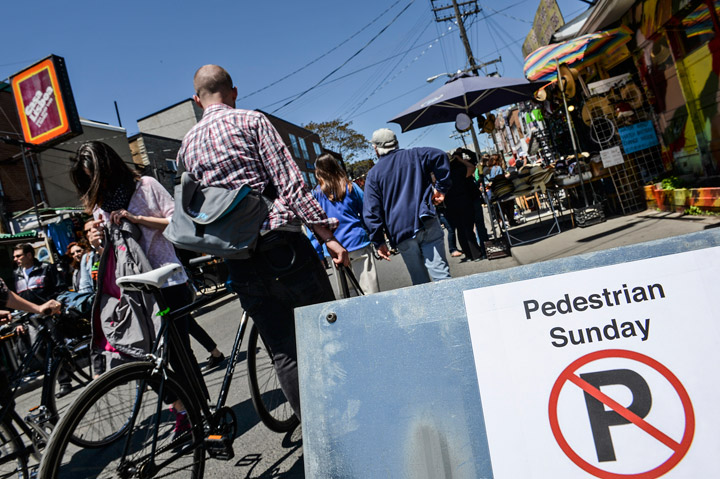Spacing Magazine tweeted comments from a local event last week regarding transit and politics from Toronto Councillor Karen Stintz and the CEO of the Toronto Region Board of Trade, Carol Wilding.

Planning is politics. But Wilding’s comments are true to form – the planning process does needs to be de-politicized.
I will turn the attention to the debate surrounding the Ontario Municipal Board (OMB) reform. The purpose of the OMB is to settle disputes on applications between developers, residents and/or the municipalities under the Planning Act. It is set up as a quasi-judicial board comprised of cabinet-appointed members.
The OMB had one of the more controversial decisions earlier this year. The OMB awarded the developers the right to build on agricultural lands that were deemed not worthy of development according to Waterloo Region’s official plan. The official plan met the policies set forth in the province’s growth plan, better know as the Places to Grow Act.
Regional Council, as well as groups such as Smart Growth Waterloo, voiced their displeasure. They claimed the OMB undermines the authority of Regional Council to set forth policies to curb urban sprawl and have sustainable and responsible future growth. The region is appealing the OMB decision through the court system claiming that there was bias in their decision. A date has not been set as to when this appeal will be heard.
Although it has not gone through the OMB appeal process just yet, Rio-Can Real Estate Development Trust (REIT) has asked the OMB to reverse the interim control by-law passed by Toronto City Council which blocked development of a Walmart. The by-law was imposed to place a hold on development on Bathurst Street until an avenue study has been completed.
I wrote a blogpost defending Rio-Can’s decision to place a Walmart in the neighbourhood. I even spoke about it on the Jim Richards Show on Newstalk 1010 back in June. (Full disclosure: I prefer to shop at Target.)
So what should we do with the OMB?
Critics of the OMB claim their decisions are pro-developers and undemocratic. Toronto councillors are suggesting to have Toronto opt out of the OMB and have its own independent planning appeal body. Martin Regg-Cohn from the Toronto Star equates the unelected members of the OMB to the Senate. The province is looking into OMB reform and MPP Rosario Marchese has introduced a private member’s bill: Bill 20, which seeks to make this transition official. A number of weeks ago, Ontario Home Builders Association Director of Policy, Michael Collins-Williams, wrote a piece in the Toronto Sun in favour of keeping the OMB intact.
I asked Michael his thoughts on Marchese’s editorial.
Following our conversation, I looked up Section 115 of the City of Toronto Act. There it is in black and white, Toronto already had the power to create its own appeal body. Bill 20 only tweaks and wordsmiths most of what is already contained in the section.
Marchese suggests that the city either have it go through the court system or have the planning appeal body, similar to that of Edmonton’s Subdivision and Appeal Boards. Planning appeals done through the court system, like those in the United States, could be also be costly, time consuming, and also controversial. A prime example was the monumental eminent domain decision from 2005 between Suzanne Kelo and the City of New London. Many states opted to legislate eminent domain reform to prevent such controversies from happening again.
Councillors are too afraid to make own decisions in their ward for the fear of not being re-elected. Instead they would rather have the OMB fight their battles. It seemed to have happened in Ottawa. Several months ago, a decision was made to reject planning staff’s proposal to accept an 18-story condo development application. As the planning commission chair was quoted, “The best course of action is to reject the application” and “to look for a solution” at the OMB.
I would support Toronto having its own appeal body, but the reasons are suspect. Decisions by an appeal body or the courts can still be controversial. Similar to the current transit funding and subway debate, the city is looking for the province to make decisions for them. It is NIMBYs in places like Kensington, the Ossington strip or The Beach who have the ear of the politicians. Continued short-term thinking for the sake of electability would stifle future development and growth potential.
In the end, some councillors need either adult supervision or to grow some cajones.




Comments